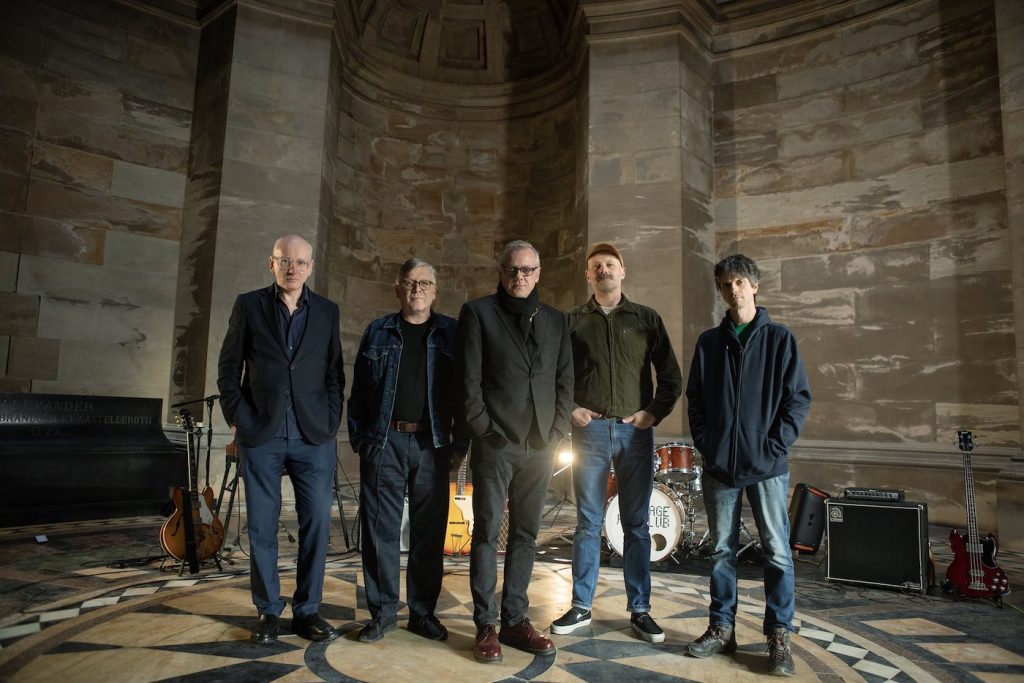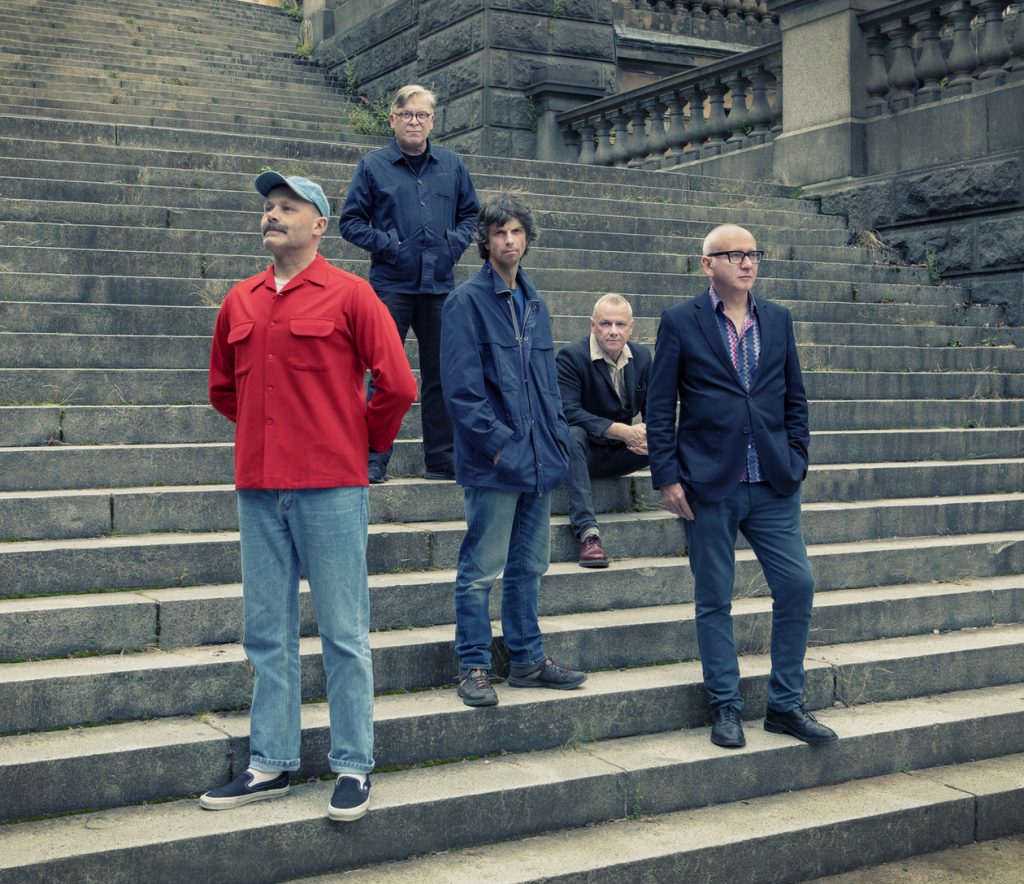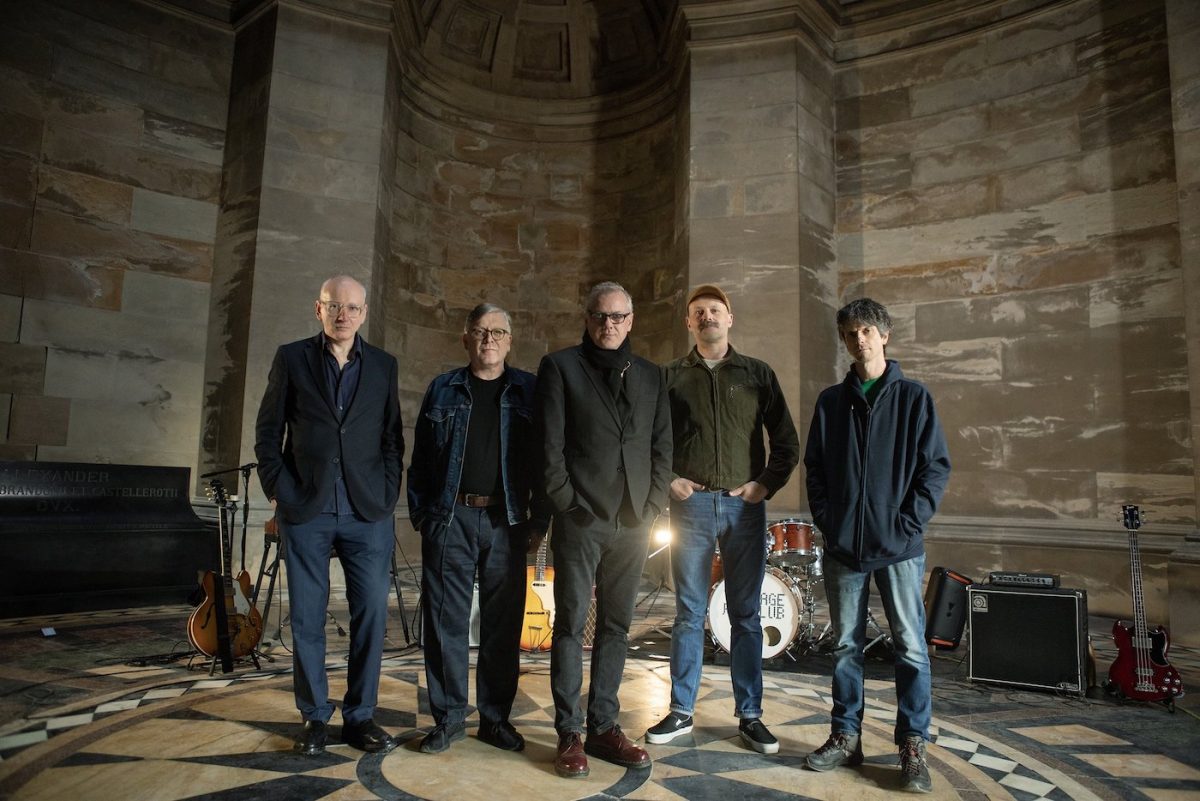
In its own unassuming way, Nothing Lasts Forever (Merge) may be Teenage Fanclub’s most finely honed album since Songs From Northern Britain. Much as they do on that 1997 classic, the harmonies on the band’s 11th LP meld into a single, succinct, soothing delivery. But where Songs reveled overtly in an affection for Big Star, the Byrds and Crosby, Stills, Nash & Young (though never to the point of affectation), Nothing sounds like nothing other than Teenage Fanclub. With its sturdily constructed, effortlessly melodic songs about life’s everyday dramas, the Scottish quintet has been leaning on a familiar formula for more than a decade now—and it’s a formula that never seems to get old. After 33 years, TFC has had plenty of time to grow into and even surpass its early influences.
On a recent Zoom call, band co-founder Raymond McGinley offered his thoughts on aging gracefully and coming to terms with your own vulnerability—a recurring theme on Nothing Lasts Forever.
Vocally, you all seem really locked in on this album. The harmonies are a huge factor in conveying the record’s overall vibe.
You do have to make the vocals count. Norman (Blake, guitar) and Euros (Childs, keyboards) are great singers … I’m not as good a singer. But we do put the time in to get it right. A lot of what you hear these days is Euros singing. He has an unbelievably sweet voice. The secret ingredient is him, really. On previous records, those higher harmonies were often Norman and another Norman, because he was the only one who could do them. Now Euros can hit those high notes, and having that extra texture is great.
Much like 2021’s Endless Arcade, Nothing Lasts Forever feels like a pretty personal album.
I think we now realize that you have to show something of yourself if the thing you’re doing to going to have worth or value. We try to offer a bit of ourselves, but it’s not always a conscious thing. For me, I’ll sit down with a guitar to write a song, and some bit comes out. But I don’t know what it means, and I have to hash it out.

What was the studio environment like for this one?
It was recorded at Rockfield Studios in South Wales. It’s rural—there were horses outside and stuff. We recorded (2000’s) Howdy! at Rockfield years ago. And on the last one, Endless Arcade, we were finishing some overdubs and went to Rockfield for four days. While we were there, Norman sat down at the piano and said he had new song, just from being at Rockfield. That was “I Left A Light On,” which we recorded for the new album. We were definitely inspired by our surroundings.
Are you perfectionists in the studio?
Hopefully, we’re more meticulous than perfectionists. Something always happens beyond what you plan … There are random factors. We’ve got five people in a room together looking at each and playing, but we’ve all got a slightly different mindset. I’ve seen pictures of other bands in the studio, and they might have a chart on the wall where they’re checking off songs. We find that really hard to relate to. We don’t have a plan for what we do that day. We just do things until it feels right. But we do have a casual intensity about things. We can work on something all day and all night until we’re happy with it.
One of my favorite tracks on the new album is “Falling Into The Sun.” It’s a perfect example of how a subtle shift in vocal phrasing can make an impact, even if the lyrics seem a little dark and obscure.
When I came up with the chorus, I thought, “I don’t actually know what that means … Falling, falling into the sun.” I was going change it, because I felt like I wasn’t in the right state of mind when I wrote it—I was feeling uptight. But I decided to just go with the feeling I was trying to get away from. When I was younger, I may have been more comfortable censoring myself so as not to appear too vulnerable. But I’ve learned that you have to go there—you have to reveal something about your state of mind during the process. Ultimately, it’s all anyone’s got.
—Hobart Rowland






